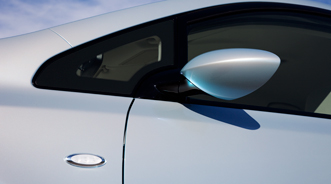KBB: Interest in Electric Vehicles Still Rather Low

IRVINE, Calif. –
The developments in electric-vehicle technology and the arrival of these cars to the market have grabbed headlines this year, but are consumers really gravitating toward these vehicles?
According to a Kelly Blue Book Market Intelligence Study, not yet, apparently.
The study found that just 7 percent of shoppers said they would be apt to put an electric vehicle on their consideration list when they buy or lease their next ride.
Why are so many consumers averse to going electric? KBB found that 87 percent of consumers said a major concern is how far an electric car can be driven on one charge. Another major worry is apparently being able to find a charging station, as 84 percent cited this as a primary concern.
And not only are most consumers unlikely to put electric cars on their consideration lists, but only 45 percent expressed interest in the actual electric-vehicle technology.
But it’s not all bad news for the electric-vehicle market.
“While it seems the car-shopping public still has a long way to go concerning electric vehicle consideration and understanding the realities of electric vehicle technology, the fact that there are all-new methods of propulsion becoming available to drivers is another great step forward for the automotive industry,” stated James Bell, executive market analyst for Kelley Blue Book’s Kbb.com.
Most consumers who did say they were interested in electric-vehicle technology were prompted by cutting the country’s foreign-oil dependence — cited as primary factor by 85 percent of respondents — as well as pollution and vehicle emission reductions, each of which garnered 83 percent.
Meanwhile, 37 percent cited possible tax benefits as a reason for being interested in the technology, and only 8 percent said the same regarding carpool lane stickers.
Also, about two-thirds (65 percent) of consumers expressing interest in the technology claimed they would consider buying from a company with no experience selling cars in the U.S.
Looking at some other findings of the study, KBB also discovered that when it comes to value, more than nine-tenths (91 percent) of respondents deemed electric vehicles “expensive.” Not to mention, more than two-fifths (43 percent) believe the value retention will not be as strong for electric vehicles compared to gas-powered models.
Continuing on, KBB looked at what consumers would do if they bought an electric vehicle. More than three-fourths (78 percent) claimed they would use it for everyday and commuting purposes.
With regards to their expectations for an electric model, consumers, on average, said they would need vehicles to get 340 miles per charge.
Moving along, KBB also delved into consumer awareness of specific electric models. Breaking it down, 71 percent said they were aware of the Chevrolet Volt and more than two-thirds (68 percent) knew about the Toyota Prius Plug-In Hybrid.
Awareness of the Ford Escape Plug-In Hybrid was at 46 percent, while 45 percent of consumers were aware of the Nissan LEAF.
Rounding out the list was the Tesla Roadster, whose awareness was at 39 percent.
Respondents were also shown photographs of electric vehicles that are already offered in the U.S. or will soon be here.
After seeing the pictures, 44 percent of respondents claimed they would either consider buying the Volt or definitely purchase the model, which led the pack, KBB indicated.
Forty-three said the same for the Prius, followed by the Escape (42 percent), Ford Focus Electric (39 percent) and LEAF (34 percent).
Interestingly enough, Kbb.com traffic patterns for the Volt and LEAF have been comparable, officials said.
Both vehicles made their debut on the site in August. During September, the Volt’s new-vehicle shopper activity showed a 138-percent month-over-month gain, while the LEAF moved ahead 191 percent.
Based on the most recent October data, the Volt was up 178 percent sequentially in October, and the LEAF climbed 167 percent, KBB shared.
“The Volt versus LEAF race continues to heat up, and there are many other players coming to market in the alternative energy space in the near future,” Bell added. “Time will tell whether this technology will be readily adopted by a large number of mainstream car buyers, or if this will just be another flash in the pan of vehicle history.”
Subscribe to receive our daily e-newsletter and never miss the latest industry news, trends, and insights across the used-car and remarketing space.


